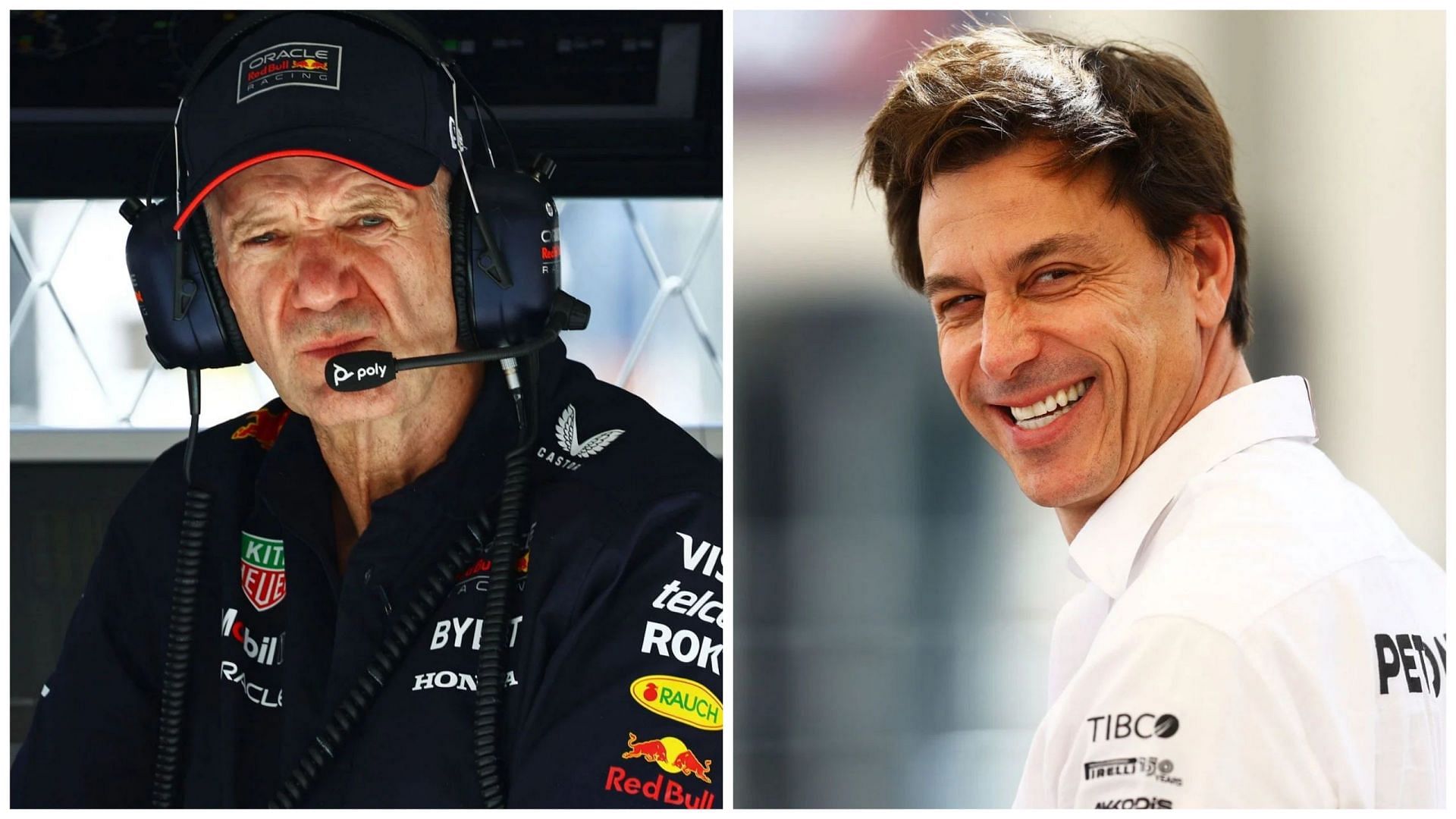Porsche's Identity Crisis: Caught Between Ferrari And Mercedes Amidst Trade Wars

Table of Contents
The Ferrari Challenge: Passion vs. Practicality
Porsche's historical positioning has been a careful balance: offering exhilarating performance without sacrificing everyday drivability. This formula, responsible for the brand's enduring success, is now being tested by the relentless pursuit of pure, unadulterated performance exemplified by Ferrari. Ferrari’s appeal lies in its uncompromising focus on track-bred performance and the deeply emotional connection it fosters with its drivers. This presents a significant challenge for Porsche. How can it maintain its sporty heritage while appealing to a broader, potentially less "passionate," audience?
- Increased competition in the high-performance sports car segment: The market is flooded with powerful, technologically advanced competitors, forcing Porsche to differentiate itself beyond mere horsepower figures.
- Need to differentiate beyond pure horsepower and track performance: Porsche needs to highlight aspects beyond raw speed, such as handling, engineering precision, and the overall driving experience.
- Emphasis on design and heritage as key differentiators: Leveraging its rich history and iconic design language is crucial in establishing a unique brand identity.
- Marketing strategies to highlight emotional connection with the brand: Porsche needs to cultivate a deeper emotional resonance with its customers, emphasizing the legacy, craftsmanship, and the feeling of driving a Porsche.
The Mercedes-Benz Conundrum: Luxury vs. Sportiness
The expansion of Mercedes-Benz into the high-performance vehicle segment creates a direct and increasingly potent challenge for Porsche. The two brands share technology and platforms in some areas, blurring the lines between their respective brand identities. This necessitates a clear distinction in terms of technological prowess and overall brand experience. Porsche must establish unique technological advantages to maintain its competitive edge.
- Investment in electrification and alternative powertrains: The shift towards electric vehicles presents both a challenge and an opportunity for Porsche to showcase its technological innovation.
- Development of innovative driver-assistance systems: Advanced driver-assistance features can differentiate Porsche vehicles within the luxury segment, enhancing safety and driving comfort.
- Focus on lightweight materials and advanced aerodynamics: Continuous improvement in these areas is key to optimizing performance and fuel efficiency.
- Highlighting Porsche's unique engineering and driving experience: Porsche's renowned handling and driving dynamics must remain central to its brand identity, setting it apart from the competition.
The Impact of Trade Wars on Porsche's Global Strategy
Global trade wars present significant headwinds for Porsche's global strategy. Tariffs and import/export challenges directly impact pricing and profitability, while supply chain disruptions affect production and delivery timelines. Market fluctuations create uncertainty in key global markets, demanding agile responses.
- Diversification of production and sourcing: Reducing reliance on single-source suppliers and diversifying manufacturing locations mitigates risk.
- Strategic partnerships to mitigate risk: Collaborations with other automotive companies or suppliers can offer advantages in navigating trade barriers.
- Adaptation to changing market dynamics: Flexibility and adaptability are crucial in reacting to shifting global economic conditions and market demands.
- Focus on regional market strategies: Tailoring strategies to specific regional markets enables Porsche to navigate the unique challenges posed by different regulatory environments and consumer preferences.
Redefining Porsche's Identity for the Future
Porsche needs a multifaceted approach to redefine its identity for the future. This involves exploring new market segments, reinforcing its brand heritage, and embracing sustainable technologies.
- Exploring new market segments: Expanding into segments like SUVs and electric vehicles allows Porsche to reach a wider audience while maintaining its luxury positioning.
- Strengthening brand heritage and storytelling: Connecting with consumers on an emotional level through compelling narratives surrounding the brand’s history and craftsmanship.
- Investing in sustainable technologies and practices: Addressing environmental concerns by investing in electric vehicles, hybrid technology, and sustainable manufacturing processes.
- Development of a clear brand identity and messaging: A consistent and clear message helps to communicate the unique value proposition of the Porsche brand.
- Investment in digital marketing and engagement: Effective digital strategies are crucial for reaching new audiences and fostering brand loyalty in today's market.
- Focus on customer experience and brand loyalty: Prioritizing customer satisfaction and building lasting relationships is key to long-term success.
- Strategic acquisitions and collaborations: Strategic partnerships and acquisitions can provide access to new technologies, markets, and expertise.
Conclusion:
Porsche's identity crisis is a complex challenge demanding innovative solutions. The company must navigate the competitive pressures from Ferrari and Mercedes-Benz, while also adapting to the ever-changing global landscape. By focusing on its unique heritage, embracing technological advancements, and strategically positioning itself in key market segments, Porsche can successfully redefine its identity and secure its future as a leading luxury sports car manufacturer. To stay updated on Porsche’s journey, continue following our analysis of Porsche's identity crisis and its impact on the automotive industry.

Featured Posts
-
 Eksereynontas To Oropedio Evdomos Tin Protomagia Fysi Pezoporia Kai Xalarosi
May 21, 2025
Eksereynontas To Oropedio Evdomos Tin Protomagia Fysi Pezoporia Kai Xalarosi
May 21, 2025 -
 Vybz Kartels Sold Out Brooklyn Shows A Triumphant Return
May 21, 2025
Vybz Kartels Sold Out Brooklyn Shows A Triumphant Return
May 21, 2025 -
 Understanding The Love Monster Exploring Its Origins And Meaning
May 21, 2025
Understanding The Love Monster Exploring Its Origins And Meaning
May 21, 2025 -
 Gumball Expect The Unexpected
May 21, 2025
Gumball Expect The Unexpected
May 21, 2025 -
 Clisson Debat Sur Le Port De Symboles Religieux Au College
May 21, 2025
Clisson Debat Sur Le Port De Symboles Religieux Au College
May 21, 2025
